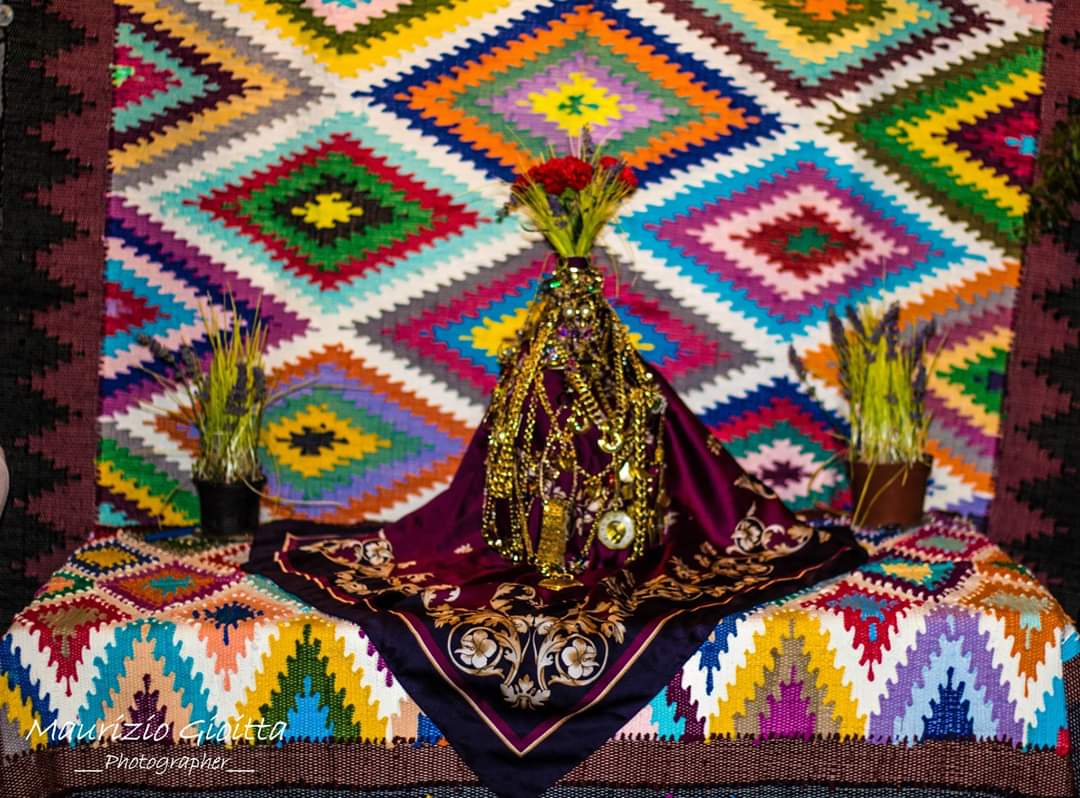
By Ttattà Go
Muzzuni Festival in Alcara Li Fusi: sacred and profane in a perfect balance of light and shadow
The Muzzuni Festival is an annual event that takes place in Alcara Li Fusi, a hill town near Messina situated in Nebrodi Park, on June 24th. Hundred of scholars and visitors participate in the event giving the town a vibrant feel. Locals villagers enjoy seeing the small town full of life.
Unfortunately, this year will not be held due to the health emergency. Waiting for the 2021 edition, we will tell you why this festivity is so special.
The Muzzuni Festival is the oldest popular festival in Italy, whose roots can be traced to the ancient popular cults. The pagan feast of Hellenic origin coincided originally with the Summer Solstice (June 21th). With the advent of Christianity, the celebrations were tied to those in honor of St. John the Baptist, a martyr beheaded and celebrated on June 24th.
The Muzzuni Festival is a mixture of sacred and profane elements. They coexist in a perfect balance of light and shadow.
The first part of the day focuses on religious celebrations, through masses and processions through the town dotted with altars embellished with fine white handmade fabrics and exposed proudly by the owners. Once the sacred rites are over, there is the archaic heart of the party.
Muzzuni (literally 'end piece') are terracotta jugs with severed necks wrapped in colored silk scarves decorated with the family golds, spikes, red carnations, lavender, rosemary and wheat sprouted in the dark. Once ready, the muzzuni are exhibited on the altars, flooded with the pezzare, colored fabrics characterized by geometric motifs spun on a wooden loom.
The female character plays a central role in this celebration: the young women place the muzzuni on the altars, perpetuating the ancient function of the priestesses of Demeter. In fact, the whole festival is linked to the cult of fertility (the muzzuni has an undoubted phallic shape), of life that is renewed through the love frenzy and the mystification of death, typical of the mystery initiation rite which was formerly professed on the Nebrodi Mountains with the complicity of the night (given its heightened wildness) in honor of Dionysus.
The festival lasts until late night, between amoebic polyphonic songs accompanied by tribal tambourines rythmes, sound of flute, accordion. Screams of singers, called chianote, rise through the narrow streets of Motta, the oldest part of the town. The suggestive corners of the neighborhoods are invaded by colors, by folk music and by love songs.
Wild dances around the fire (u zuccu di Sanciuvanni) mark the beginning of summer. They also celebrate friendship, through the traditional exchange of sugared almonds as a bond that unites friends destined to consolidate the relationship for the rest of life.
The desire to be together triumphs,remembering the ancient tradition of those who waited for u muzzuni to declare themselves to their loved one. It was also the opportunity for farmers, who were used to living alone in the fields, to meet up with all the inhabitants of the village. The echo of a hymn to life has survived to the present day and still awakens dormant emotions.
Photo credits: Maurizio Gioitta




